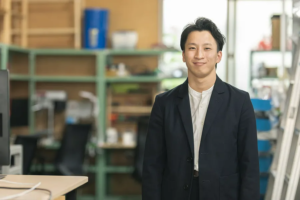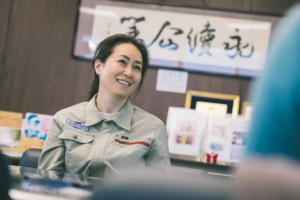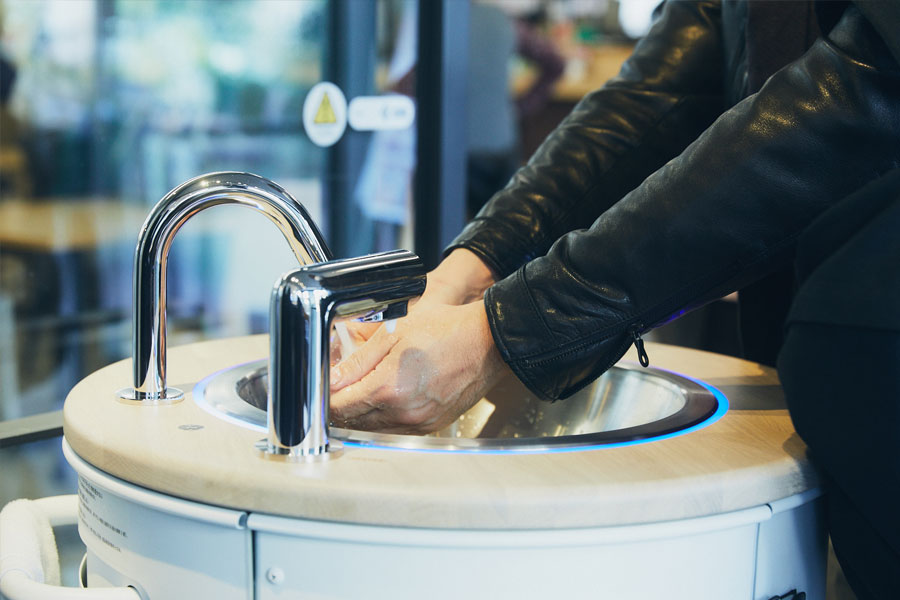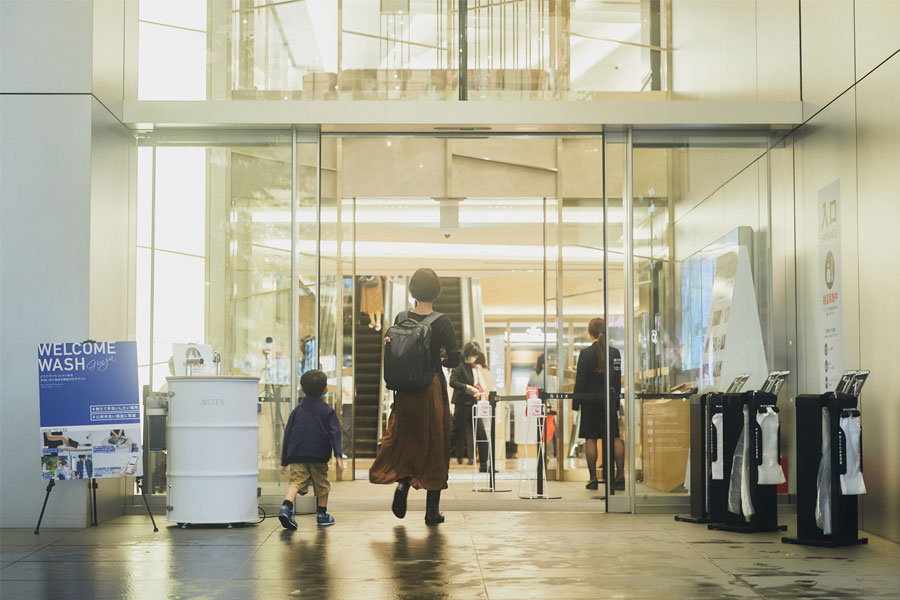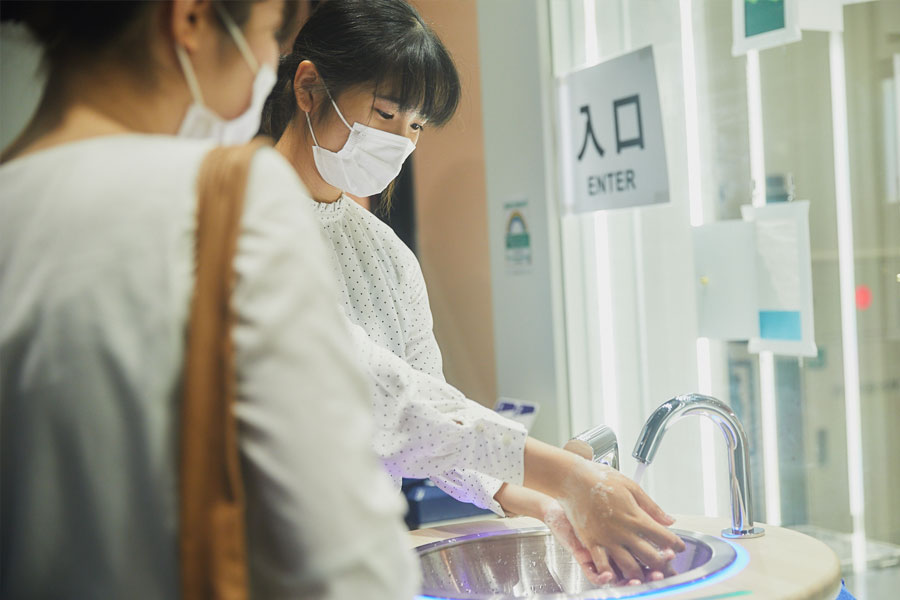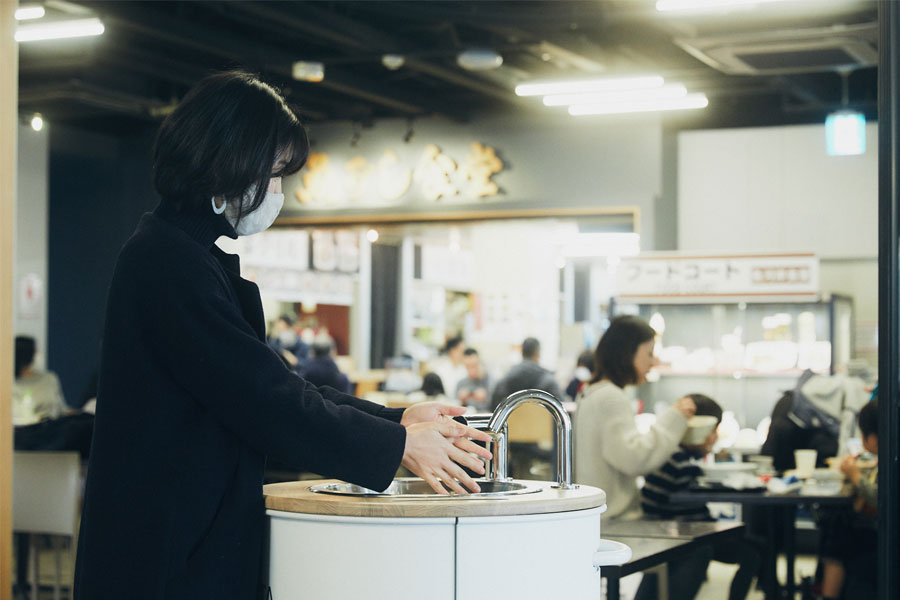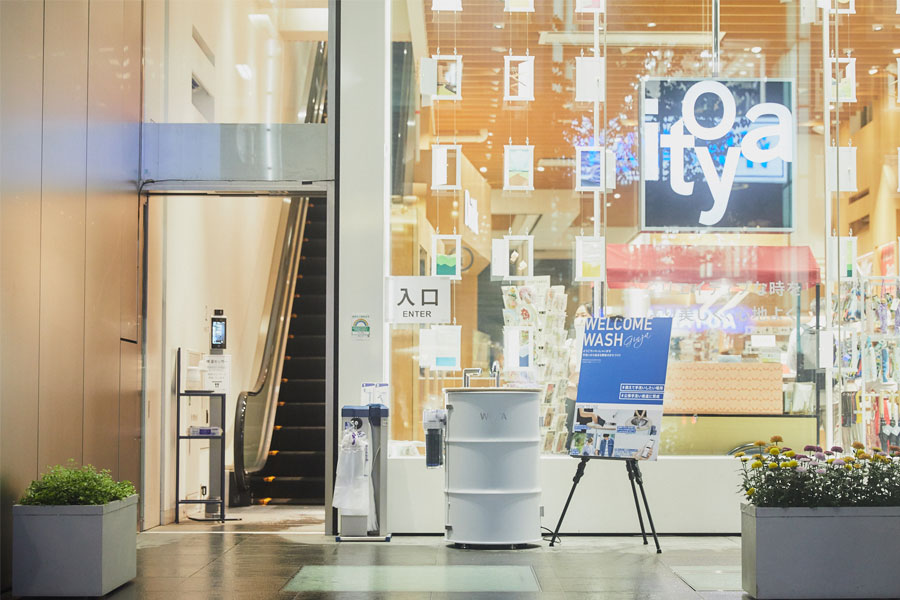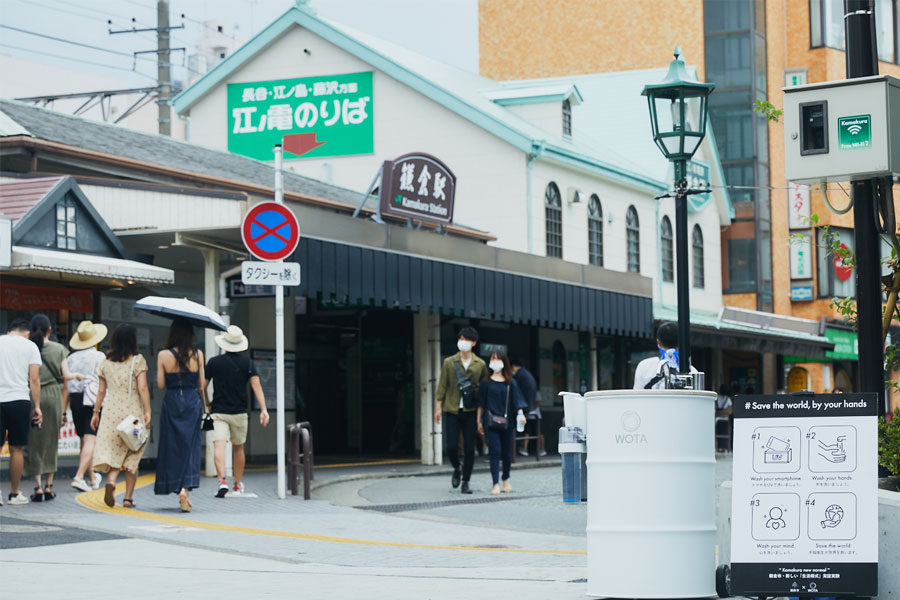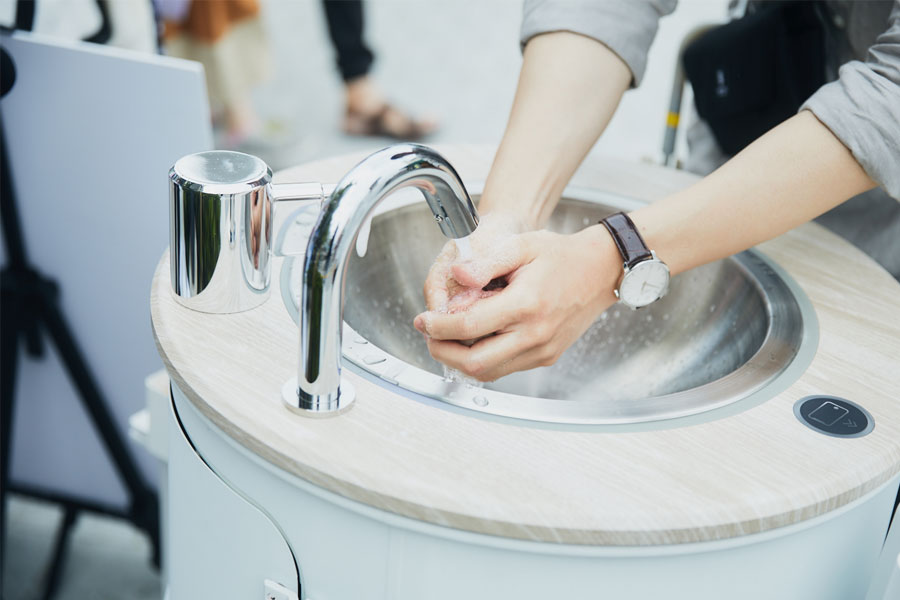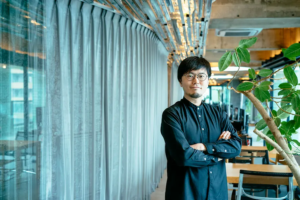Public Hygiene Shifts from Duty to Service – WOTA CEO, Yosuke Maeda
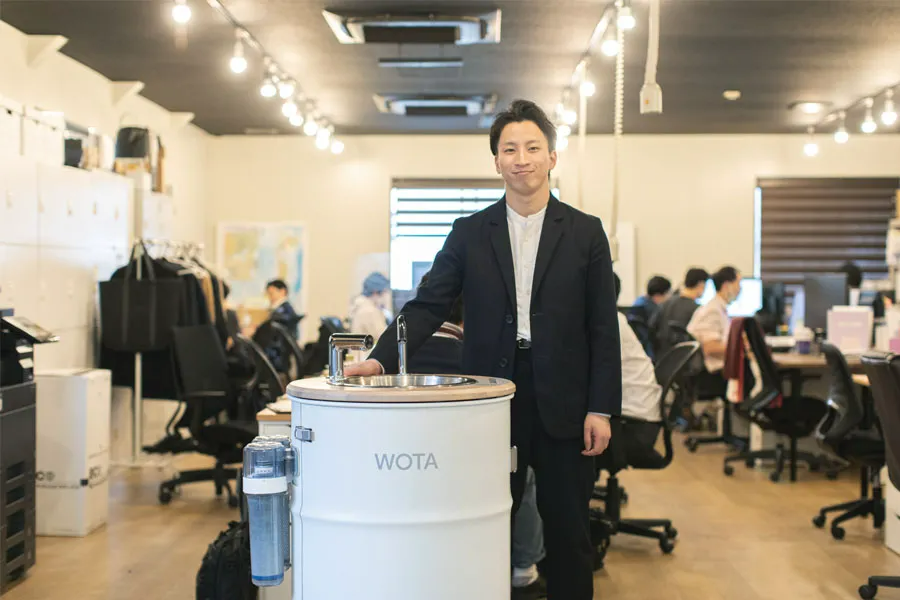
The “WOTA BOX” product developed by WOTA Co., Ltd. is an autonomous decentralized water circulation system that enables repeated use of clean water without the need to link up with water service pipes. In addition, the company has a water-circulation hand washing product called “WOSH” developed using this technology which enables anyone to wash their hands anytime and anywhere. According to the CEO, this WOSH product was developed at a rapid pace in response to increased awareness of hygiene due to the COVID-19 pandemic.
A total of 15 units were installed at 6 facilities such as GINZA SIX, Lumine, and Marui (no longer in operation). Further installations have progressed thereafter, mainly in shopping facilities, and the product is being increasingly adopted at workplaces such as offices now.
In April of this year, WOSH was installed on the office floor of the Tokyo Metropolitan Government Building where government officials work. For this article, we discussed the Tokyo Metropolitan Government installation of WOSH with Hiroyuki Ozawa, Manager of the Strategy Section of the Tokyo Metropolitan Digital Service Bureau Strategy Department. In the second half, we talked to WOTA’s CEO, Yosuke Maeda, about the background of WOSH’s development and his vision for the future of public hygiene.
WOSH Installed at Tokyo Metropolitan Government Building
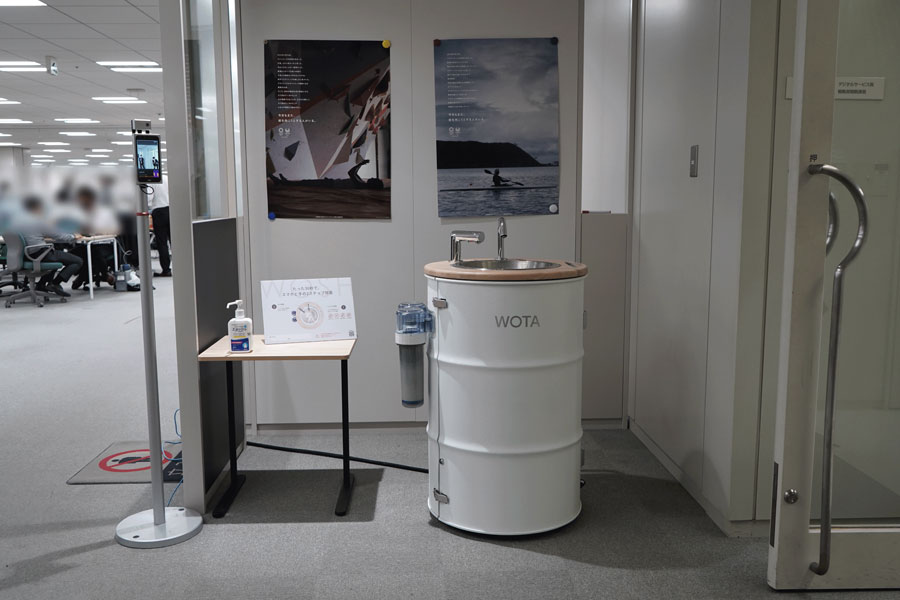
WORK MILL: Mr. Ozawa, Please share some of the background for WOSH being installed at the Tokyo Metropolitan Government Building.
Ozawa: The Tokyo Metropolitan Government announced its “Shin Tosei” structural reform strategy in March of this year. One aspect of this plan was the “Office of the Future Achievement Project,” consisting of the creation of a futuristic office environment with functionality to support new working styles. Considerations for this were carried out around the summer of last year, and there was a notion that “we should have the citizens help out too, rather than just working with the Tokyo Metropolitan Government.” So a pitch event called “UPGRADE with TOKYO” featuring various startup companies was held, and each company proposed tools and systems to assist the working style reforms in the government.
WORK MILL: You mentioned “tools and systems to assist the working style reforms in the government.” Because of the timing, was COVID-19 a keyword for these?
Ozawa: Yes. The event theme was set as “Aiming to Establish a ‘New Everyday’ in the World of COVID-19: Working Style Reforms at the Tokyo Metropolitan Government.” Among the proposals from each company, the one which drew our interest the most was WOTA’S “WOSH” product.
WORK MILL: Could you please give us some information about what kind of proposals some of the other companies had?
Ozawa: We received proposals for things like air conditioning systems with temperature management and CO2 concentration functions, as well as tools for things like avoiding high concentrations of people in close quarters. One point the proposals of all the companies had in common is that they took the perspectives of “not everything can be moved online” and “how can we control infection risks when people gather together in person?”
WORK MILL: Where in the Tokyo Metropolitan Government Building is WOSH installed?
Ozawa: At the entrance to the office floor. We set up a temperature management system and disinfectant liquid in the same place, enabling employees to come to work in a clean state. The position is one all employees pass when reporting to work.
The good thing about WOSH is that you can put it anywhere without worrying about pipes. For example, during the trial phase I thought, “If this stop is no good, let’s try moving it over here.” Normally, moving a hand washing station requires significant construction work, and the water facility layout is set in most buildings and cannot be changed, but WOSH is light enough to be moved around by a single adult.
WORK MILL: So in the future, even if there are changes to the office layout, the product will fit right in. What was your experience like once it was installed?
Ozawa: The design is superb, and when you lay eyes on it it catches your interest. Design has a tremendous impact in manufacturing, and WOTA has really succeeded in that sense as well in my opinion.
Not only the employees but also visitors to the building took an interest in it. When people ask, “What is that?” and you tell them, “It’s this kind of product.” That kind of conversation. That kind of interaction also contributes to promoting the infection prevention initiatives of the Tokyo Metropolitan Government as well.
WORK MILL: If there are any expectations the Tokyo Metropolitan Government has for WOTA, could you share them with us?
Ozawa: The current model requires a power outlet, so I think if a battery powered model could be developed, that would increase the possible applications even more. Also, the water purification function is especially useful for disasters. Emergency water is used in evacuation areas when water services are stopped, but people can’t escape the notion that it’s a waste of water and don’t wash their hands as much as they should in some cases. Having a system for recirculating water rather than a tank of stored water that gets used up is very promising from an administrative perspective.
In addition, there’s the possibility of contributing internationally. There are lots of places in the world where water is insufficient or polluted. Securing water is an international problem, and the initiatives of WOTA are a possible approach to solving it.
Hand Washing Is the Most Fundamental Hygiene Measure
WORK MILL: Mr. Maeda, When did you start working on the development of the “WOSH” water circulation hand-washing device?
Maeda: the design prior to revisions was completed in September 2019. The development started from a thought I had, “I want to make a water circulation system specialized to hand-washing that can be transported anywhere in a car.” If the whole circulation mechanism is built in, you can use water without it ever running out, and it would be convenient to have something usable both inside and outside of the car. Then, in September 2019, Typhoon 15 struck. We got a request to use the system in the temporary toilets for the evacuation areas in Chiba Prefecture and provided prototype WOSH systems for this purpose.
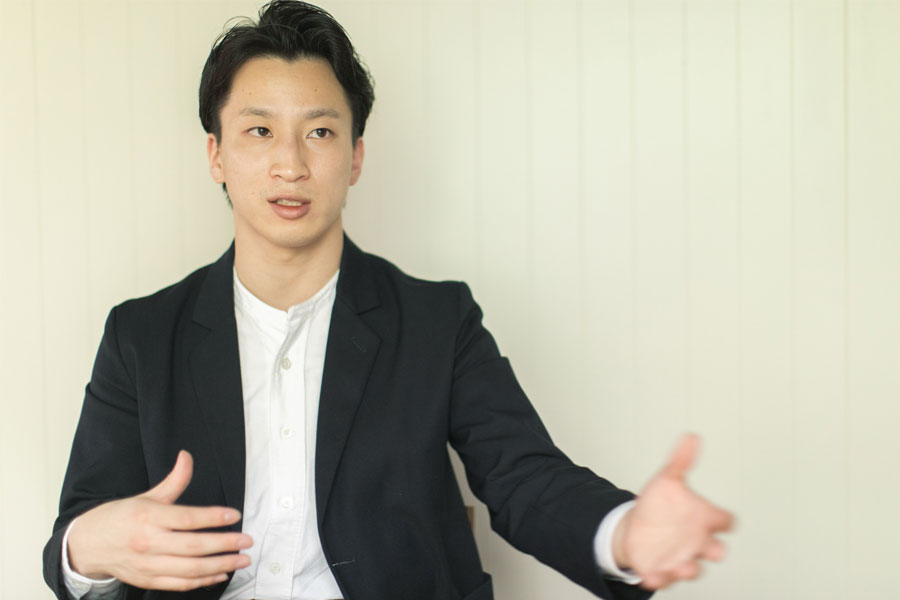
―Yosuke Maeda
Born in Tokushima Prefecture in 1992. Graduated from Tokyo Metropolitan University Faculty of Engineering Department of Architecture, then earned his master degree at the Department of Architecture in the Graduate School of Engineering at the same university. Took an interest in biological research starting in early childhood and conducted an experiment using γ-polyglutamic acid derived from fermented soybeans to purify water and presented the results to The Pharmaceutical Society of Japan during high school. Began working on product and system development for major housing equipment manufacturers and digital art companies starting from his time in undergraduate and graduate studies. Started his own company afterward, and after developing and selling an algorithm for energy conservation controls for buildings, he was hired as the COO of WOTA Co., Ltd. Currently serving as the CEO of the same company and aiming to achieve an autonomous, decentralized water circulation society. Recipient of the University of Tokyo President’s Award for Students, Good Design Award (Prime Minister’s Award), and “30 UNDER 30 JAPAN 2020” award (sponsor: Forbes JAPAN).
WORK MILL: After that, when the product was converted to the current drum design, what kind of process led up to that?
Maeda: Around January 2020, the COVID-19 pandemic started to spread. As people became increasingly aware of infection prevention and hygiene measures, an executive at a certain restaurant chain contacted us and said, “We would like to set up WOSH in front of our stores.” “In that case, we’ll think of a design appropriate for a store-front setting.” And so, with the goal of making our manufacturing process itself more sustainable, I got the idea to use old metal drums.
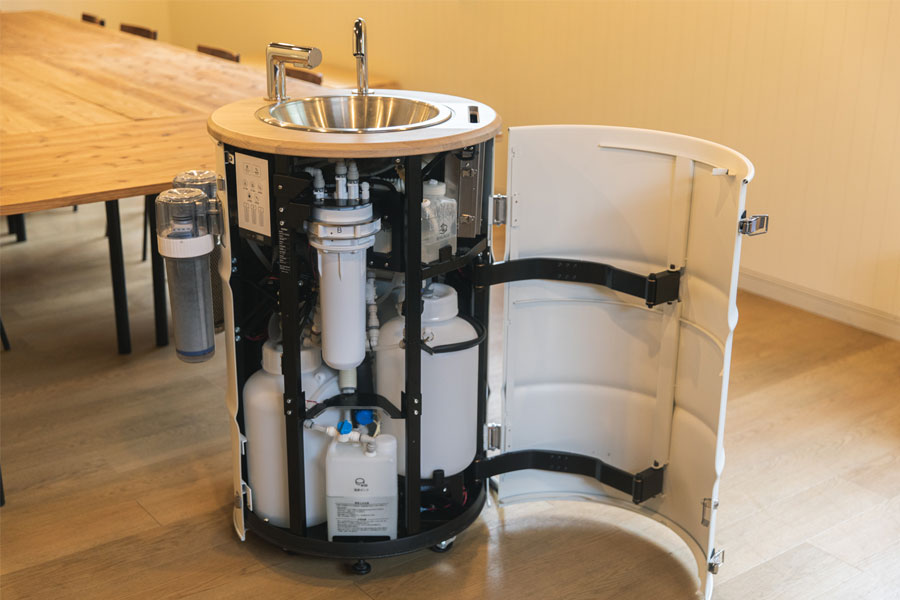
WORK MILL: The product prototype was in operation from 2019, but did the development pace accelerate because of the impact of COVID-19?
Maeda: Yes, we intentionally sped up the process. Our goal was to complete the development in time for the 2nd and 3rd waves of the virus. I considered making hand-washing possible without water piping to transform it into a more habitual action to be our critical mission for the current social condition.
Washing your hands is the most fundamental hygiene measure, so it should be possible to do it anywhere. This is not limited to the COVID-19 pandemic. Distributed arrangement of hand-washing stations shuts off infection pathways for all kinds of viruses, achieving a hygienic space. If we build up hygienic spaces one by one, this in turn contributes to improving public hygiene overall.
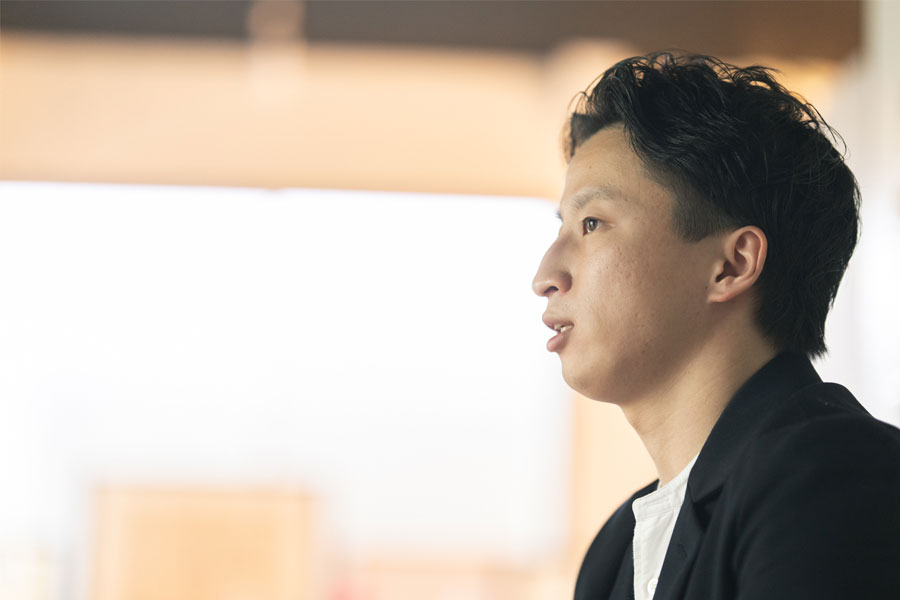
WORK MILL: Are you planning to develop a version for general home use?
Maeda: Of course. That’s something I’m considering for the future. If a water circulation system becomes a standard part of the household, that could make even bathing more freely available. You could even go take a bath on your balcony in the summer. (laughs)
In apartment complexes, the pipe space is predetermined, and that more or less determines the layout of each unit. If an apartment is 50 square meters, about 15 – 20 of that is immovable, and only the remaining 30 or so can be customized and renovated. If water systems become mobile, that would make it possible for anyone to fully customize their entire living space to their liking.
From “Duty” to “Service”
WORK MILL: I think people’s sense of safety and their priorities in awareness of hygiene in their daily lives are also changing. How do you picture the new normal continuing on from here, Mr. Maeda?
Maeda: I think public hygiene is changing from simply a duty to an aspect of hospitality and service. The possibility of infection with a virus from coming into contact with another person is a primordial risk that humanity has faced ever since we started moving. There were things like indigenous illnesses, and although people who lived in these areas for long periods of time developed immunity to them, when people began moving around to various different areas, these diseases which were formerly only endemic to certain places began to spread to others.
Although cities have the function of bringing people into contact, creating new meetings and communication, they are also full of risks like infection which coincide with this contact. Especially with the globalization of cities in modern times, physical conditions lend these areas to becoming a medium for the rapid spread of infectious diseases all over the world. In the midst of this, I believe the increased awareness of hygiene in response to COVID-19 was a case of risks which have always existed since the primordial times coming to the surface.
WORK MILL: With public hygiene shifting from mere duty to service, it seems likely people’s awareness of hygiene as a concept will also change.
Maeda: Spreading through the world, getting people’s attention, drawing their interest so they want to use it, and improving hygiene in society. This is a favorable cycle. That’s why a new form of hygiene which breaks away from sense of duty is important for the future, and I think all kinds of people, not just us, should be proposing these kinds of ideas.
What’s important is what kind of vision you have in response to the condition of needing to do something. Instead of seeing this as a duty, what we propose is “hygiene infrastructure that makes people happy.” Precisely because this is something that needs to be done, we strive to do it more comfortably and more simply. That’s the kind of proposal I want to continue making.
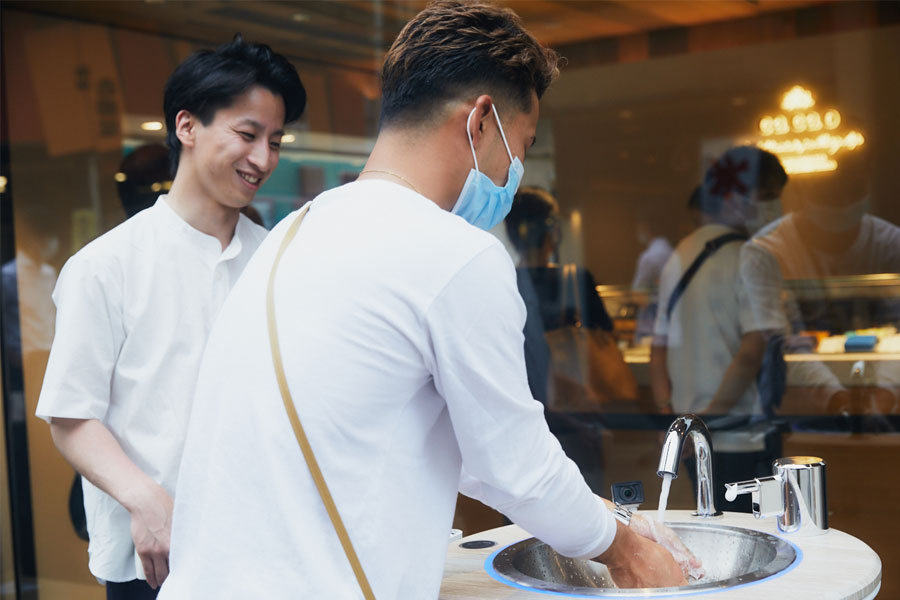
Updated: September 8th, 2022
Interview conducted: June 2021
Images credits: Tokyo Metropolitan Government, WOTA Co., Ltd.
Text: Press Labo
Photos: Shinsuke Yasui




